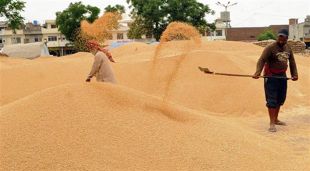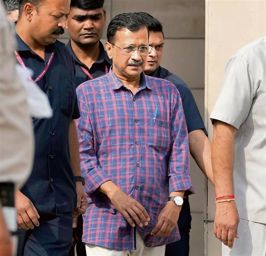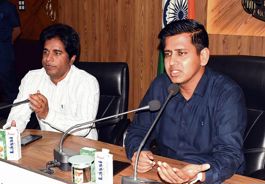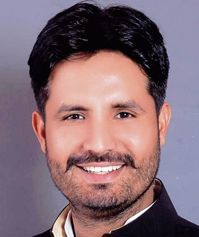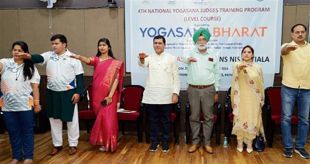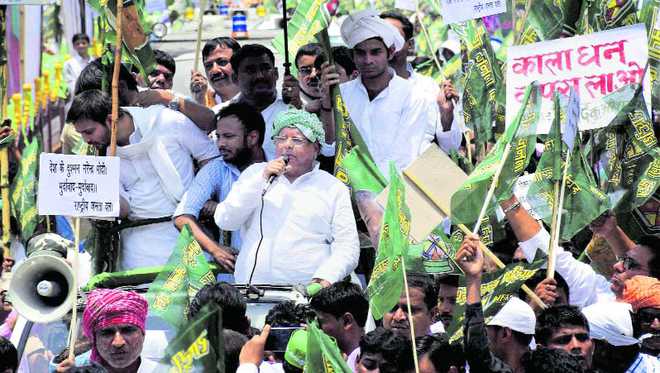
Caste factor: The “liberal” establishment of Indian academic experts have little time for caste inequality. Rashtriya Janata Dal chief Laloo Prasad Yadav & his partymen march to demand the publishing of the Caste Census, in Patna. PTI
S. Subramanian
The journalist and historian Thomas Frank has recently written an extraordinarily thoughtful essay, for the November 2016 issue of Harper's Magazine (http://harpers.org/archive/2016/11/swat-team-2/), on how the “liberal” journalistic establishment ganged up against Senator Bernie Sanders in the on-going US Presidential campaigns. The means to the end of putting paid to Sanders' relatively radical ideas consisted of a series of demands and characterisations. These included "…constant calls for civility"; the representation of Sanders' progressivism as "atavism"; "…defining the boundaries of legitimacy…(by) defining Sanders out"; declaring that "Sanders' ideas weren't practical"; alleging that Sanders suffered from "three delusions" - those of "…abandon(ing) the centre”, “…believ(ing) that things were bad in the United States”, and “…perceive(ing) an epidemic of corruption…”; bemoaning that “instead of encouraging the lowly to work hard…the senator was merely offering them goodies…”; accusing him of failure to recognise that the “…system…doesn’t permit a president to achieve anything more than “incremental change”; and pointing to his failure to defer to the dictates of “realism” which “…automatically prioritises the thoughts and observations of the realism experts…”.
Much of this is strongly evocative of the commentary and advice on aspects of India's socio-economic development that emanates from the “liberal” community of the country's professional economics experts and official intellectuals. I speak here of a general tendency, which obviously excludes a few honourable exceptions, and is intended to capture a broadly prevailing approach to description and evaluation, without resort to the citation of specific chapters and verses and authors. In this spirit, one could consider an assortment of issues, as dealt with below (and in no particular order of presumed importance or priority).
The pernicious role of caste in India's development experience is a major case in point. The “liberal” establishment of Indian academic experts (both in India and abroad) will speak at length of gender inequality, while having little time for caste inequality. The one practice is as commendable as the other is inexplicable — except, perhaps, in terms of the vastly differential returns to the reputation of “sensitive progressivism” which the former secures in relation to the latter. More bluntly, one is speaking here of being equipped with a fine sense of what is fashionable and trendy. There is also the question of what Frank calls “civility”: it could just be in plain bad taste to remind ourselves of Khairlanji as an indicator that “things are bad in India”: the liberal Indian intellectual would rather expend his energy arguing that “caste” is not “race”. And caste seldom tickles the liberal sensibility into awakening as effectively as when it is invoked in the context of affirmative action (read “reservations in education and employment”). A bizarre liberal Indian view of the matter seems to be that if one is opposed to “Mandir” one should also be opposed to “Mandal”, on the grounds that both sentiments should be predicated on the similar and equal grounds of opposition to a politics of resentment that advocates the contemporary righting of historical wrongs. And then, of course, there is the liberal need to defer to the constraints of practicality and realism. Caste, from any perspective, is an immutable reality of Indian social structure, and is not about to depart the scene anytime soon, so why go on and on about it? Apart from this, and as Frank says of the American liberal establishment, we are speaking of “…a way of thinking that comes from a place of economic security and takes a view of the common people that is distinctly patrician”. It is this distinctly patrician view which the Indian liberal manifests when he expresses horror over the “caste-consciousness” that Census data on caste-related socio-economic indicators might unleash (“when I was in school, it never even occurred to me ask what my class-mates’ caste backgrounds were”) ; or when he speaks disappointedly of the divisiveness of “identity politics,” and exhorts citizens to make their own identities instead of being tied to identity by caste or religion (an exhortation that apparently takes no notice of the fact that caste is not voluntarily chosen, nor voluntarily jettisoned). A similar mix of considerations relating to civility, realism, atavism, and the authority of experts presides over the liberal response to poverty and inequality in India. In this view, while reductions in poverty are compatible with unacceptably high prevailing rates, it would be civil to underline the first phenomenon and uncivil to mention the second. Given the path of “reform-oriented” growth to which the Indian economy is committed, realism dictates that the best way of dealing with rising inequality is to deny the fact — by employing protocols of measurement that emphasise relative rather than absolute (or even intermediate) indices of inequality. To revisit long-forgotten policy discussions on such phenomena as land-reform, progressive direct taxation, institutional credit to agriculture, public investment, or enhanced social spending, would be to flog horses that are well and truly dead — an act of atavism which compounds the ill-manneredness of seeing a bottle as half-empty when it might equally be seen as half-full. Apart from which, why would we wish to question the authority of experts in the Indian Planning Commission or the World Bank who repeatedly assure us that, both nationally and globally, things are brightening on the poverty front every day in every way? These are our liberal friends and colleagues whose feelings we offend only at the cost of agreeable etiquette (and at peril to our own interests as experts and professionals who may be called upon any time to serve on committees and commissions and panels). And so, as good liberals, we endorse — either explicitly or by silence — relaxed labour laws, relaxed environmental laws, business-friendly land-acquisition laws, infringements of tribal rights to natural resources, and a view of development that prioritises “progress” over natural rights; and we desist from making old-fashioned, not to say impolite, judgements on the increasing financialisation of our economy or lawlessness of multinational corporations. The late S. Guhan, a civil servant and academic, was a commentator who also worked tirelessly on the possibilities of social security provisioning by the state in India. At one seminar, where he presented a concrete agenda of measures aimed at alleviating poverty, he was met by a familiar and predictable response of “feasibility constraints” from the audience of assembled experts. Guhan's response was both simple and instructive: “Someone has to do something for the silent poor. We are not talking about what the politicians are likely to do. It is obviously because they are not likely to do it that I thought it was the responsibility of academics to press for it.”
The community of “liberal” Indian commentators on India's social and economic development rightly represents neither the right nor the party-based left. However, there are strong indications of its increasingly rightward-slanting evolution, couched in a language of moderation and reasonableness. By invoking practicality, good manners, and the ill-advisedness of atavistic impulses, this community has succeeded in discouraging humane scepticism about the present as being nihilistic, even as it has succeeded in discouraging humane optimism about a certain kind of future as being unrealistic — for all but those that Thomas Frank describes as belonging to its “…familiar… precincts of comfort and exclusivity.”
The writer is an economist.





















